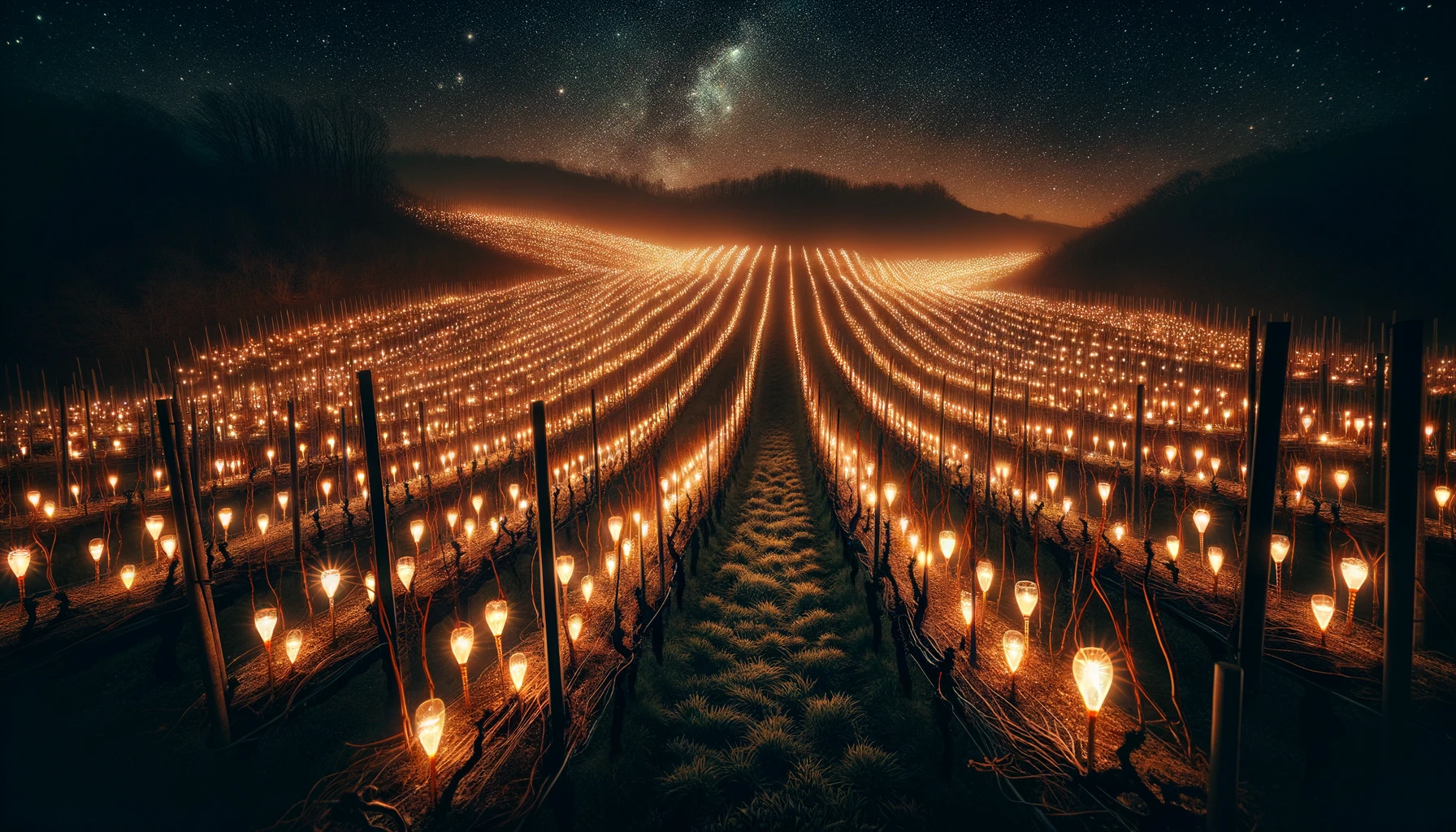Blogging, they say, has met its demise. The musings of individuals across the globe pitted against a machine armed with the entirety of the internet’s knowledge—faster, more cost-effective, and arguably superior. On the surface, it may seem like the final chapter for the world of blogging. However, the obituary for this art form is not yet ready to be penned. In fact, it could be taking on an intriguing new life in the world of wine blogging. The promise is that AI’s transformative influence might be breathing fresh vigor into the tradition, a synergy of human expertise and artificial intelligence. So, let’s delve deeper into the world where human creativity and AI-powered precision harmonize.
Combining the Power of the Internet and Language Learning
Blogging is Dead
In the Age of AI, with the widespread emergence of ChatGPT and its competitors, the impact of artificial intelligence on the labor market has taken center stage. Gone are the days of old-school Terminators; the new bogeyman on the block is the seemingly benign ChatGPT, a specter haunting our professional world, with whispers of rendering many obsolete and among them, if you believe it, wine writers of all sorts.
The rise of such AI tools, notably ChatGPT, has undeniably thrust the conversation into the public sphere. Yet, let us not forget that the realm of artificial intelligence has been with us for a considerable span. While discussions regarding the risks it poses to the human condition have been ongoing—bolstered, in no small part, by the indomitable Arnold Schwarzenegger’s portrayal of a relentless cyborg—the discourse concerning ChatGPT’s potential influence on the art of blogging began years ago, even if the annals of our collective memory may have started to fade.
Close to half a decade in the rearview mirror, I chanced upon an article prophesying the demise of human-generated content, a harbinger of the AI revolution that now appears to loom large on the horizon:
“Blogging is dead. Recently, a new language processing and content generation framework from OpenAI was published. Leveraging the full power of machine learning available today, it’s capable of generating internet content. Texts, blog posts, articles, and even translations. The implications for content writers -and internet content in general- are overwhelming.”
Believing in the power of blogs or maybe I was just enjoying myself too much writing about things that interest me, I disregarded the warning as one does. However, fast forward a couple of years and there is no denying that Artificial Intelligence has changed things forever.
I would not ask you to take my word for it though. If you have any doubt about it, instead take an article that was published on the website of Jane Anson, MW, earlier this year. Entitled “ChatGPT and wine: extinction-level event for wine writers and sommeliers?“, the article stressed that AI has the potential to bring a paradigm shift in how wine is described, marketed, and sold. The author was confident though that while ChatGPT can generate detailed and accurate wine descriptions, it is unlikely to completely replace human wine writers for tasting notes in the near future: “The knowledge, experience, and personal touch of human wine writers are still essential for providing accurate and engaging tasting notes and evaluations in the wine industry”.
Is that really the case, though? As much as I’d like to remain optimistic, I cannot help but wonder whether that will hold true.
First, let us think about how AI already has changed the blogging landscape? On the surface you will have come across articles that have been written entirely by AI tools, just as an experiment and with similar intentions to the example just given. Some are as amusing just as trying AI tools such as the people at WineEnthusiast discovered when they asked the machine to write tasting notes in the voice of a pirate (“Arr, this vodka be smooth like a pirate’s kiss”), a British royal (“I was recently introduced to vodka and I have to say, I’m quite hooked!”) or a rude wine expert (“This vodka is garbage. It tastes like rubbing alcohol and paint thinner.”). Others are not so good, but all seem to come to the conclusion that AI generated content eventually shouldn’t be a real threat.
Below the obvious examples, much more content will have been created using such applications, often invisible unless the AI has gotten something terrible wrong. Take the American media giant Gannett, which had been using an AI tool for content creation but had to pull the plug after a series of dismal articles that were repetitive, poorly written, and lacking key details.
Straight from the source
Still, the power of AI goes beyond mere content generation. Just ask ChatGPT for instance about how AI is going to influence blogging, you get a long list of ways it is poised to have a significant influence on the field of blogging in several ways. Here is the answer the machine gave me:
- Content Generation: AI-powered tools, such as natural language generation (NLG) algorithms, can assist bloggers in generating content more efficiently. These tools can automatically create articles, product descriptions, or summaries based on specific input or data. This can be particularly useful for bloggers who need to produce a high volume of content.
- Content Editing and Proofreading: AI-based grammar and spell checkers, as well as style and tone analysis tools, can help bloggers improve the quality of their writing. These tools can identify errors, suggest corrections, and provide recommendations to enhance readability and engagement.
- SEO Optimization: AI can assist bloggers in optimizing their content for search engines. AI algorithms can analyze keyword trends, suggest relevant keywords, and provide recommendations for on-page SEO, helping bloggers improve their content’s visibility in search engine results.
- Personalization: AI can enable bloggers to deliver personalized content to their readers. By analyzing user behavior and preferences, AI algorithms can recommend related articles, products, or services that are more likely to engage individual visitors, leading to higher reader retention and conversion rates.
- Content Curation: Bloggers can use AI-powered content curation tools to discover and share relevant articles, news, and multimedia content from the web. These tools help bloggers stay updated and provide valuable resources to their audience.
- Audience Analytics: AI can provide bloggers with insights into their audience’s behavior, interests, and demographics. This data can help bloggers tailor their content to better suit their target audience, leading to more effective engagement and conversion strategies.
- Chatbots and Customer Support: Bloggers can integrate AI-powered chatbots into their websites to provide instant responses to reader inquiries. Chatbots can answer common questions, provide information, and even guide users to relevant blog posts, enhancing the overall reader experience.
- Social Media Promotion: AI tools can analyze social media trends and suggest optimal posting times and content strategies to maximize a blog’s social media reach. Additionally, AI can assist in automating social media posting and engagement tasks.
- Monetization: AI can help bloggers optimize their monetization strategies. This includes ad placement optimization, affiliate marketing suggestions, and even identifying potential sponsorship opportunities.
- Language Translation: For bloggers with a global audience, AI-powered translation tools can help make content accessible to a broader range of readers by translating articles into various languages.
- Predictive Analytics: AI can predict trends and topics that are likely to gain popularity, helping bloggers stay ahead of the curve and produce timely and relevant content.
ChatGPT by default advises its users that it can make mistakes and recommends checking important information. In this exercise it also added that it is important to note that while AI can be a valuable tool for bloggers, it should be used thoughtfully and ethically. The human touch, creativity, and authenticity in blogging remain essential for building trust and a loyal readership. Bloggers should aim to use AI as an aid to enhance their work rather than replace it entirely. If only the good people at Gannett had known that…
Beyond the Rim of Your Wine Glass
Wine writing is, of course, not the only field that seems to be under immediate threat. In the ever-evolving landscape of academia, the encroachment of generative AI looms large, raising concerns that stretch far beyond the blogosphere. The scholastic realm, with its hallowed halls of learning, now grapples with a new reality. Educators at schools and universities find themselves navigating uncharted waters, where the ubiquitous presence of AI casts a long shadow.
While the prevailing discourse often fixates on the pressing question of detecting unauthorized AI-aided compositions in students’ theses and homework, a seismic shift is underway. The focus is shifting from merely uncovering these digital co-conspirators, for, as it transpires, reliable automated checks face formidable challenges (Indeed, the odds are less favorable than one might hope, as recently acknowledged by OpenAI).
Intriguingly, a cohort of forward-thinkers has awakened to the realization that the question at hand is no longer if AI shall play a pivotal role in the pedagogical landscape, but how best to embrace its integration and monitor academic progress effectively.
In an interesting op-ed featured in a national German newspaper, Professor Patrick Glauner, a luminary in the field of AI at the TH Deggendorf and an advisor to the parliaments of Germany, France, and Luxembourg, expounds the virtues of deploying generative AI in academia under the aegis of well-defined guidelines. Glauner contends that educators should seize this technological wave as an opportunity, nurturing students in the judicious use of AI. Failure to do so, he posits, risks training a generation for obsolescence rather than empowerment.
The crucible of this discussion exposes a fundamental human characteristic—an unwavering adaptability to change that has been our lodestar for millennia. This trait has fostered our continued evolution. Yet, initial reactions tend to fixate on the potential job displacement AI might bring, rather than envisioning how it could enhance and redefine existing roles. However, it is imperative to acknowledge that amidst the winds of change, valid concerns persist, painting a complex tableau of human-AI coexistence.
AI-Generated Content and Ethical concerns
Talking about concerns, in the realm of AI-generated content, a meticulous examination of ethical concerns is an imperative endeavor. These multifaceted issues prompt contemplation, sparking the conscience of those who tread the digital landscape.
Foremost among these concerns is the specter of plagiarism, a pressing ethical dilemma. Long before the advent of ChatGPT, tools catering to inquisitive scholars and cunning intellects had already proliferated. With disconcerting ease, AI content generation tools may, inadvertently or intentionally, give rise to the replication of another’s intellectual labor, casting a shadow upon the sanctity of originality and intellectual property rights. Beyond ethical boundaries, this trespass into the realm of ideas can potentially invoke legal consequences, a stark reminder of the perils that lurk within the digital realm.
Equally paramount is the challenge of inherent biases inscribed into the very fabric of AI content tools. These biases, their origins rooted in the data employed to train AI models and the conscious or unconscious programming decisions of developers, have far-reaching consequences. The content thus generated becomes a vessel for the perpetuation of discrimination and the reinforcement of harmful stereotypes, widening societal chasms. The emotional journey of discovery, particularly concerning the treatment of black individuals in America, unfolds from incredulity to shock, eventually kindling outrage as the stark reality of its ramifications dawns.
Moreover, the ethereal boundary between transparency and deception is where AI-generated content often treads. With unparalleled persuasion, it bewitches readers, rendering them oblivious to the mechanical origin of the words that dance before them. Ethical misgivings arise when AI-created content is presented without disclosure, eroding trust and imperiling the integrity of the platforms that host it.
The disclaimer, albeit a general one such as the one used by ChatGPT, acknowledges the inherent vagaries of AI-generated content, a stark departure from the unwavering accountability expected of humans. The void of personal responsibility within AI content tools poses a challenge: the onus of upholding ethical standards remains suspended in a nebulous territory, raising questions about where the buck should stop in ensuring compliance.
Much like the ominous shadow of potential job displacement, the consequences of these concerns transcend mere economic considerations. They encompass the potential loss of human creativity and expertise within the content creation process. Thus, the clarion call for responsible AI implementation resonates loudly in the domain of content creation, akin to the calls for prudence in transferring the reins of weapon systems to AI, albeit with nuances worth considering.
The Bottom Line
Still, I believe that there is no point in denying its existence and would rather embrace it to reap the benefits the technology has to offer. I reckon that it will also emphasise the importance of the human experience and opinion. As a result, influencer might become even more important – whether you like this particular occupation or not. Eventually, people prefer reading about experiences rather than just facts, and people by nature appear to trust machines less than humans even if it is humans that try to deceive us rather than machine – until Skynet takes over, of course.
In the meantime, I will explore how AI is transforming the world of wine. Content generation, after all, is just one of the potential benefits of the technology. And while I do so, I would, of course, be delighted to hear what you think about AI in general but my deliberations in particular as well. After all, the social exchange of thoughts and opinions is what makes us humans. Well, that’s at least what the Internet told me…
Epilogue (previously known as disclaimer):
Alright, this may come as a shock but believe it or not: this article has indeed been written, at least in part, with the help of ChatGPT (while the slightly trashy image has been created with Canva’s AI Image Generator). For me it is an attempt to highlight both the benefits and ethical challenges of AI content creation in a practical example. It will also be part of an ongoing test about how to use such tools to write better and more productively, though you will have to believe me when I say that so far, I haven’t saved much time in terms of production, but I imagine that is to be expected at the beginning.
In all my writing, I hold a steadfast commitment to meticulous research and factual accuracy. Just as throughout this website, the views expressed are those of the authors and contributors alone. It’s imperative for readers to understand, AI or not, that the information presented here serves general informational purposes. While I strive to maintain the correctness and currency of this data, I disclaim any responsibility for inaccuracies or omissions, technical glitches, or any consequences stemming from third-party links. This article contains no endorsements, affiliations, or references to the producers or companies mentioned, reaffirming the unwavering stance that the opinions expressed are solely my own, and I bear no liability for any potential implications. Rest assured, the essence remains unchanged—a reminder that the responsibility for these words rests with the author alone. The more things change, it seems, the more they stay the same.
—
Disclaimer: As always, I’d like to be completely transparent about affiliations, conflicts of interest, my expressed views and liability: Like anywhere else on this website, the views and opinions expressed are solely those of the original authors and other contributors. The material information contained on this website is for general information purposes only. I endeavour to keep this information correct and up-to-date, I do not accept any liability for any falls in accurate or incomplete information or damages arising from technical issues as well as damages arising from clicking on or relying on third-party links. I am not responsible for outside links and information is contained in this article nor does it contain any referrals or affiliations with any of the producers or companies mentioned. As I said, the opinions my own, no liability, just thought it would be important to make this clear. Thanks!




